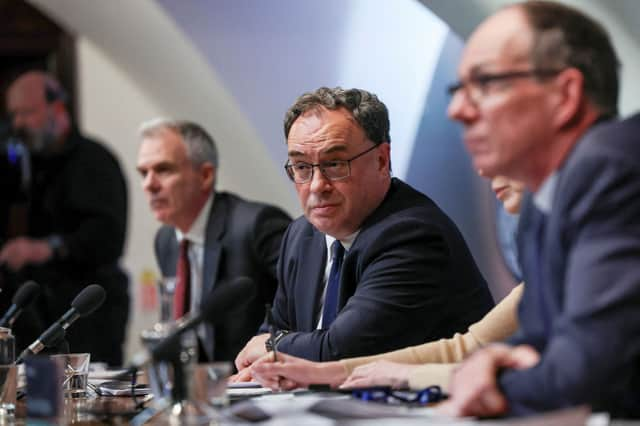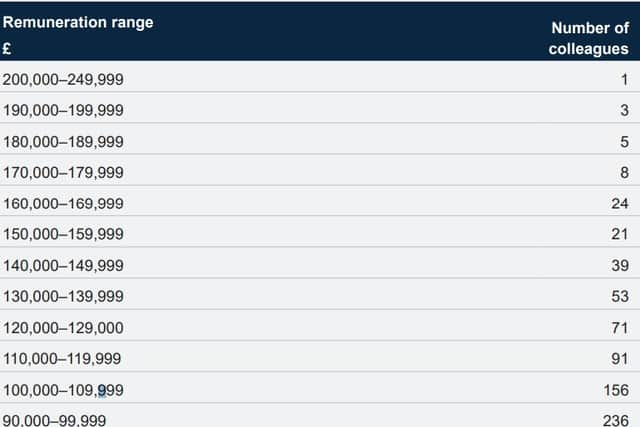Bank of England: governor Andrew Bailey, monetary policy committee members and executive pay explained


The Bank of England is expected to raise interest rates by 0.5% today (22 June), prompting concerns about further increases in mortgage rates, which have already risen significantly in recent months.
The BoE should create an “artificial recession” in order to stem rising inflation rates, a member of Jeremy Hunt’s advisory council and JP Morgan banker has claimed.
The Bank of England (BoE) is the UK’s independent central bank which operates separately from the government but is accountable to parliament. As a central bank, the BoE has a number of responsibilities, including issuing cash and overseeing payment systems, but it is also tasked with keeping the value of the UK’s currency stable, with the main tool at its disposal being changing the main interest rate.
As the BoE has consistently raised interest rates over the last year or so in response to rising inflation, the institution has been criticised for being out of touch with the difficulties faced by normal people. BoE Governor Andrew Bailey was condemned last year when he called for people not to ask for pay rises, because it would contribute to rising inflation.
Bailey, who was appointed to the top job at the BoE in March 2020, will serve in the role until 2028 and will not be able to renew his term, while a number of deputy governors will each serve five-year terms, although they may continue for another term once after this.
How much do Bank of England governors earn?
The BoE currently has six governors, including five deputy governors. According to the annual report for the year ending February 2022, between them these six governors earned around £2 million - with Bailey netting almost £600,000, including salary, benefits, pension and other remuneration.
Here are the individual remuneration packages for each governor:
- Andrew Bailey: £597,592
- Ben Broadbent: £376,053
- Sir Jon Cunliffe: £374,288
- Joanne Place: £306,820 (left during this financial year)
- Ben Stimson: £50,203 (replaced Joanne Place in January 2022)
- Dave Ramsden: £345,293
- Sam Woods: £380,293
Governors receive a salary and specified benefits, but they do not receive any additional benefits allowance or any performance award or other performance-related pay. In March 2021, pay for Governors was increased by 1.0%. As his predecessor has done in previous years, Bailey declined to accept this increase.
How much do members of the Bank of England’s Monetary Policy Committee earn?
As Governor, Andrew Bailey sits on all three of the BoE’s committees, the Monetary Policy Committee, the Financial Policy Committee and the Prudent Regulation Committee. Three of the deputy governors also sit on each of these committees, while one, Sam Woods, sits on just two.
Each committee also includes other senior Bank of England staff, external members, and other senior figures in finance and regulation including the head of the Financial Conduct Authority. External members are paid differently, depending on which committee they sit on.
- The four external members of the MPC each earn £158,100 per year.
- The seven external members of the PRC each earn £110,000 per year.
- The five external members of the FPC each earn £98,200 per year.
The bank has a number of executive directors, who earned an average of £194,635 per year, although some were promoted during the year
There are also 1,076 members of staff employed by the bank below executive director level who earn more than £80,000 per year. The table below shows the breakdown of how many members of staff fall within each pay grade.


What has Andrew Bailey said about wages and inflation?
Bailey criticised in February last year, when he told people not to ask for a pay rise, but then when asked, couldn’t remember how much he was paid - despite the mammoth sum. The BoE governor told the BBC that the bank was implicitly asking workers not to ask for significant pay rises, despite the rising cost of living.
He said that it would be "painful" for workers but that some "moderation of wage rises" would be necessary to prevent inflation becoming entrenched.
Bailey said: "In the sense of saying, we do need to see a moderation of wage rises, now that’s painful. I don’t want to in any sense sugar that, it is painful. But we need to see that in order to get through this problem more quickly.”
Later, when speaking to MPs at a Treasury Committee hearing about inflation, Bailey was trying to justify requesting pay restraints to prevent inflation from rising. Dame Angela Eagle MP asked the governor if he could tell her what the median care worker wage was and asked him what his pay was in comparison.
Bailey replied that it was "substantially higher" and when pressed for an exact figure said: “Um, it’s somewhere over £500,000 - I can’t tell you exactly what it was, I don’t carry that around in my head."
Comment Guidelines
National World encourages reader discussion on our stories. User feedback, insights and back-and-forth exchanges add a rich layer of context to reporting. Please review our Community Guidelines before commenting.
